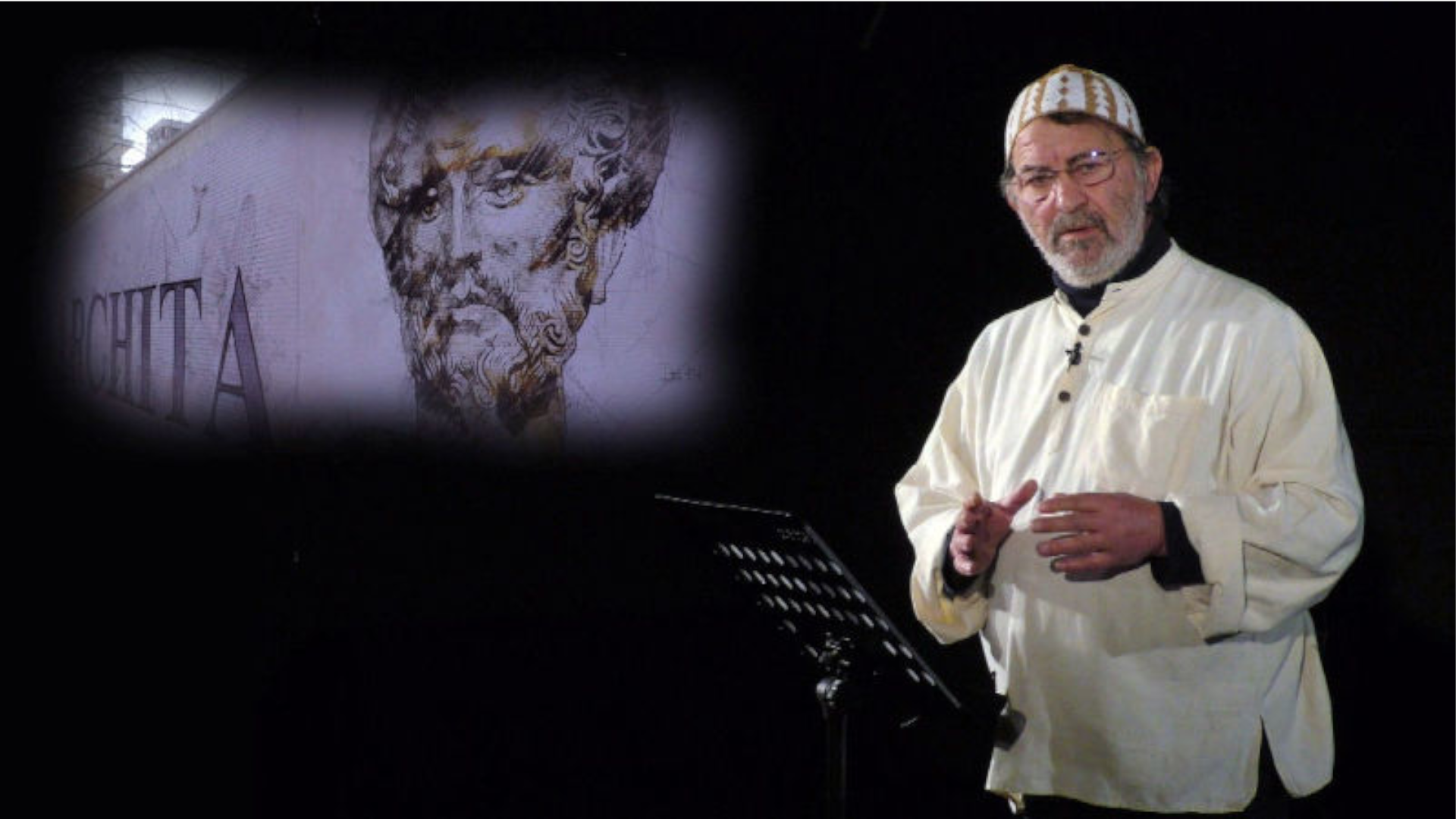Guarino Archita interview
ARCHYTAS, THE GENIUS COMMANDER
To appreciate the ancient power of Taranto, you have to go back to the time of Magna Graecia, when it was one of the largest cities, with over 200,000 inhabitants.
With its large port, located at the centre of the Mediterranean Sea, it became the largest commercial emporium in the whole of southern Italy.
Fishing, abundant wine-growing, the manufacture of fine wool, the processing of purple,
the production of weapons, and the minting of gold and silver coins made it a rich and opulent city.
The Tarentine army was defeated in a great battle in 473 BC by the Messapians and the Iapygians.
This was a salutary defeat that signalled the end of the oligarchy and the advent of democracy.
A “strategist”, elected annually by the aristocracy and the people, was placed at the head of the city’s republic.
Taranto reorganised its army and fleet.
Thus began the city’s golden age, which reached its greatest splendour under my rule, from 367 to 360 BC.
Archytas is my name, born in Tarentum in 428 BC, I was the only strategist who was given the mandate for seven years in a row.
Under my rule, Taranto increased its prosperity, I made it the largest city in Magna Graecia.
As a disciple of Pythagoras, I positioned it at the centre of great cultural affairs, nurturing and developing them through friendships with famous philosophers: Plato, Empedocles, Aristotle.
I dabbled in the study of mathematics, finding the property of the cube, and in mechanics, inventing a flying machine, called “Archytas’ dove”.
My love of harmony led me to find the correct spacing between the holes on a flute.
I also elevated the city economically, developing arts, workshops, industries, trade, forging relationships with cities from Sicily to Istria and even Greece, from Africa to Asia Minor.
I had public buildings, temples, great monuments erected, including by the outstanding master Lysippus.
And then the Gymnasium, the Stadium, developing sport at the highest level.
In the 4th century B.C., Taranto stood out for the number and quality of its athletes in the most important Pan-Hellenic sporting competitions.
Outraged by the jealousy of my political opponents, I left the city in 360 BC.
It was my seventh year as strategist.
Death took me in the Adriatic Sea, near the Gargano, and as an unburied shipwreck, the poet Horace wanted me to ask the sailors for a little suffrage [intercessionary prayer / sacrifice]:
“Do not refuse to give my bones and uncovered head a grain of fine sand, so that you will remain safe, wherever Eurus threatens with the Hesperian waves, or the Venusian forests are struck; and that much merchandise, from those who can, will come to you in abundance, from righteous Jupiter and from Neptune, guardian of sacred Tarentum”.
*** Automatically generated subtitles ***


